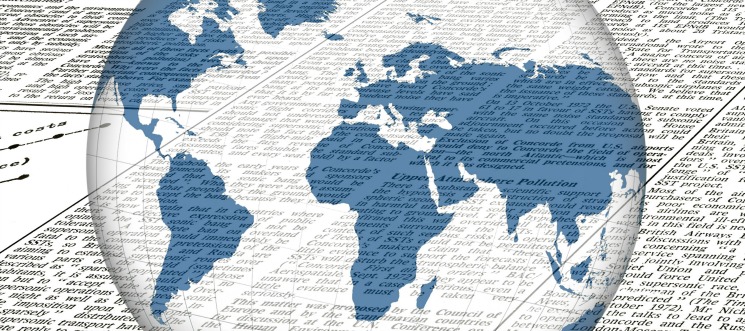Helsinki Commission leadership, members, and initiatives are frequently featured in both the U.S. and foreign press.
RELATED CONTENT

Bipartisan House members push Biden to allow Poland ...
Oct 30, 2024
Chairman Wilson Issues Statement on Government Raids...
Oct 25, 2024WASHINGTON—Today, US Helsinki Commission Chairman Joe Wilson (SC-02), issued the following statement regarding the government raids on the homes of the two Tbilisi, Georgia-based researchers with the US-based Atlantic Council: “It […]

Bipartisan Helsinki Commission Leadership Express Al...
May 06, 2025WASHINGTON—U.S. Helsinki Commission Chairman Senator Roger Wicker (MS), Co-Chairman Representative Joe Wilson (SC-02), Ranking Member Senator Sheldon Whitehouse (RI), and Ranking Member Representative Steve Cohen (TN-09) today expressed their alarm […]

Bipartisan Helsinki Commission Leadership Express Ou...
May 02, 2025WASHINGTON—U.S. Helsinki Commission Chairman Senator Roger Wicker (MS), Co-Chairman Representative Joe Wilson (SC-02), Ranking Member Senator Sheldon Whitehouse (RI), and Ranking Member Representative Steve Cohen (TN-09) today expressed their outrage […]

Bipartisan Helsinki Commission Members Express Suppo...
Apr 25, 2025WASHINGTON— U.S. Helsinki Commission Chairman Senator Roger Wicker (MS), Co-Chairman Representative Joe Wilson (SC-02), Ranking Member Senator Sheldon Whitehouse (RI), Ranking Member Representative Steve Cohen (TN-09), Representative Richard Hudson (NC-09), […]

Myths & Facts about Russia’s War on Ukraine
Apr 08, 2025MYTH: NATO expansion provoked Russia’s war against Ukraine. FACT: Russia’s war on Ukraine is a continuation of Russia’s centuries-long policy of treating Ukraine as a vassal state to be subjugated. […]

Bipartisan Helsinki Commission Leadership Respond to...
Apr 03, 2025WASHINGTON—Today, the leadership of the U.S. Helsinki Commission, Chairman Senator Roger Wicker (MS), Co-Chairman Representative Joe Wilson (SC-02), Ranking Member Senator Sheldon Whitehouse (RI), and Ranking Member Representative Steve Cohen […]

Bipartisan Helsinki Commission Members Express Conce...
Apr 02, 2025WASHINGTON—U.S. Helsinki Commission Chairman Senator Roger Wicker (MS), Co-Chairman Representative Joe Wilson (SC-02), Ranking Member Senator Sheldon Whitehouse (RI), Ranking Member Representative Steve Cohen (TN-09), Commissioner Representative Marc Veasey (TX-33), […]

Bipartisan Helsinki Commission Leadership Marks Sole...
Feb 24, 2025WASHINGTON—Today, the bipartisan leadership of the U.S. Helsinki Commission, Chairman Senator Roger Wicker (MS), Co-Chairman Representative Joe Wilson (SC-02), Ranking Member Senator Sheldon Whitehouse (RI), and Ranking Member Representative Steve […]

Senator Roger Wicker Appointed Chairman of the U.S. ...
Feb 12, 2025WASHINGTON—The Presiding Officer, on behalf of the Vice President, last week announced the appointment of U.S. Senator Roger Wicker, R-Miss., as chairman of the Commission on Security and Cooperation in […]






